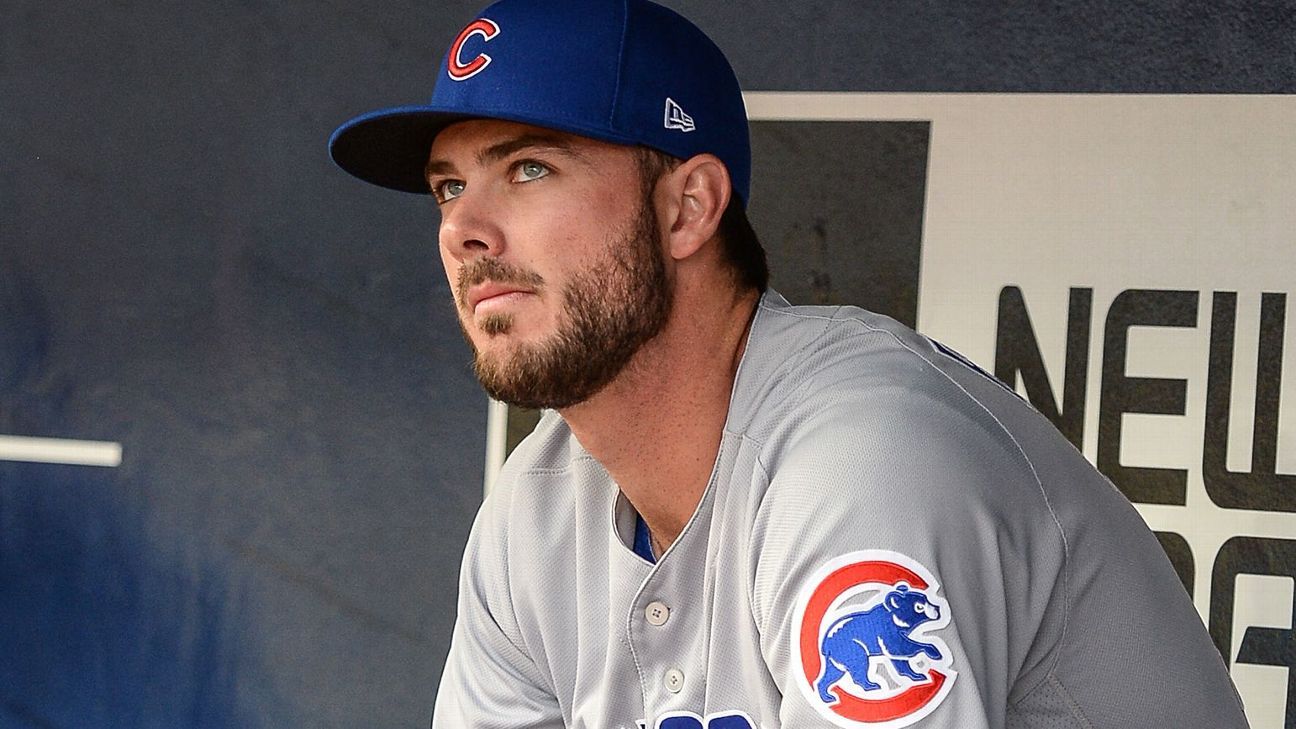It took most of the offseason but the decision is finally in: Kris Bryant lost the service time grievance that he filed in 2015, after the Chicago Cubs kept him in the minors for the first 10 days of that season before promoting him to the major leagues.
The ruling in favor of the team has ramifications both short and long term that will impact everything from Bryant’s potential trade value to MLB’s next collective bargaining negotiations.
Here’s what you need to know:
What was MLB’s ruling?
The league’s decision, which sources said is going through its final reviews before being made public within a week, held that the Cubs did not run afoul of service-time rules when they called Bryant to the major leagues on April 17, 2015. He had spent the first two weeks of the season in Triple-A after a dominant spring training. Had the Cubs summoned Bryant a day earlier, he would have ended the season with 172 days of service, or a full year.
Instead, with 171 days, Bryant fell short of a year by one day — and accordingly had his free agency delayed by a full season.
What is the impact of the ruling?
It means Bryant will become a free agent after the 2021 season instead of becoming one this coming November. So if the Cubs want to trade him — a consistent rumor all winter — his value is higher by being under club control for two seasons instead of one. It makes him more attractive to possible suitors, but interested teams will also have to give up more to get him.
Will this impact other service time cases in baseball?
The union thought this was the best chance to win a case because Bryant’s status as a prospect back in 2015 left the Cubs with no reason to keep him from starting the season in the majors. It is doubtful a similar case from another player would elicit a different outcome, but this could still be a winning move for the players.
It has brought the issue front-and-center, and considering new CBA negotiations are around the corner, it’s bound to be a hot topic. If everyone wants to see the best players in the game at all times, then both sides have a stake in it.
What were the chances of him winning this anyway?
Slim to none. The language in the collective bargaining agreement wasn’t going to be rewritten by an arbiter when it can be changed with input from both sides after the 2021 season. That’s not to say he had no chance, but the grievance proved a point more than anything: The 172 days (out of 183) that are required to get a full year of time in the majors have made it too easy for teams to hold a player down in the minors for 10 days before beginning his major league career.
Why fight it then?
See above. Change needs a face. Now if and when a new deal is struck involving service time, Bryant’s case will undoubtedly be referenced. Bryant and the union simply felt it needed to be done, no matter the outcome.
Why did it take so long, potentially hampering the Cubs’ offseason?
There’s no one reason for that, but there was plenty for the arbiter to sink his teeth into before making a ruling, including interviews and briefs from the Cubs and Bryant. His job was to make the right decision, not one that fit any timeline.
So will Bryant be traded before the 2020 season begins?
As late as it is in the offseason, the Cubs really haven’t done anything of major note yet, so it’s not like any roster makeover is necessarily complete. The bottom line is if there’s a deal to be made, the date on the calendar won’t prevent it from getting done.
The Braves, Nationals, Rangers and Dodgers, among others, still have questions at third base and/or elsewhere on their rosters. So, yes, a Bryant trade could very well still happen despite February’s rapid approach.
